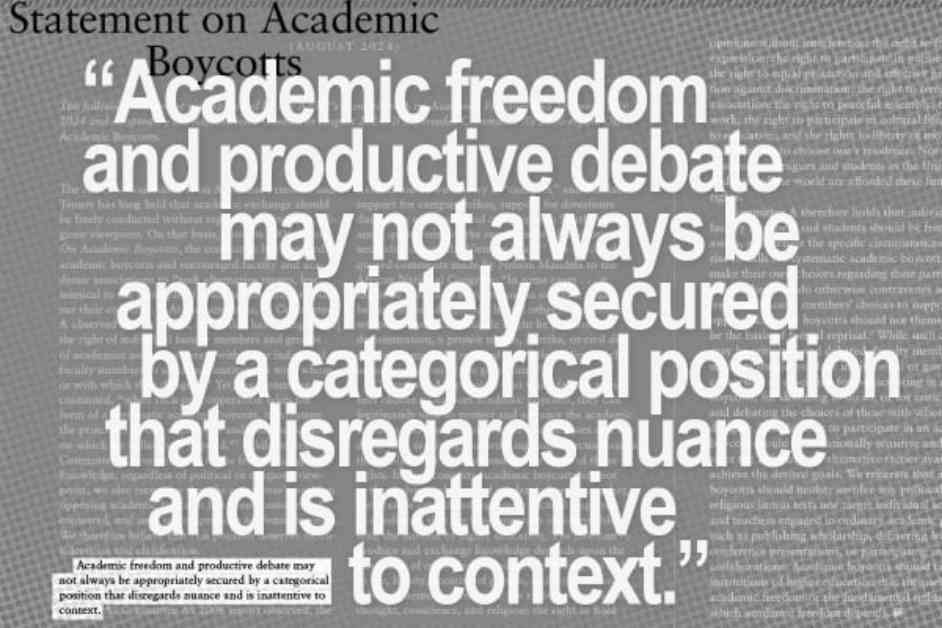The American Association of University Professors (AAUP) made headlines recently when it announced a significant policy shift regarding academic boycotts. This decision, which marks a departure from the organization’s long-standing stance on the issue, has sparked intense debate and criticism from various quarters.
The AAUP, known for its role in defining and safeguarding academic freedom, had previously opposed academic boycotts against any universities in any country. However, following a unanimous vote by its Committee A on Academic Freedom and Tenure and its national council, the organization unveiled a new policy that recognizes academic boycotts as legitimate tactics in certain circumstances.
According to the new policy, faculty members who support academic boycotts can do so in order to protect and advance the academic freedom and fundamental rights of colleagues and students facing violations of their rights. The statement emphasizes that academic boycotts, when targeted at institutions that violate academic freedom or fundamental rights, are not in themselves violations of academic freedom but rather strategic responses to challenging conditions in higher education.
Critics of the AAUP’s policy reversal have raised concerns about the impact of academic boycotts on academic freedom. The Foundation for Individual Rights and Expression (FIRE), a prominent free-speech advocacy group, reiterated its opposition to academic boycotts as a threat to academic freedom. Alex Morey, FIRE’s vice president of campus advocacy, highlighted the potential negative effects of boycotts on students and faculty members, citing examples of individuals being unable to pursue opportunities due to boycott-related restrictions.
Keith Whittington, the founding chair of the Academic Freedom Alliance, expressed skepticism about the compatibility of academic boycotts with academic freedom concerns. While acknowledging that some boycotts may be more justifiable than others, Whittington emphasized the need for careful consideration of the implications of such actions on academic freedom.
The AAUP’s policy shift has also drawn attention to the growing influence of unionization within the organization. With its recent affiliation with the American Federation of Teachers (AFT) and the increasing role of union locals on campuses, the AAUP has seen a shift towards a more labor-oriented approach. Todd Wolfson, the AAUP’s new president, has emphasized the importance of collective action in advancing the organization’s goals, drawing parallels between academic boycotts and labor strikes.
While the AAUP’s new policy has been met with criticism from some quarters, including social media, conservative media, and pro-Israeli groups, it has also received support from advocates of academic freedom. Miriam Elman, executive director of the Academic Engagement Network, expressed disappointment over the policy reversal, citing concerns about the impact on academic guild rules and the organization’s reputation.
Cary Nelson, a former AAUP president, launched a petition against the organization’s policy change, raising questions about the prioritization of political agendas over principles of opposition to boycotts. Nelson, who has been critical of what he perceives as the organization’s shift towards anti-Zionism, called for a reevaluation of the AAUP’s role as a standard-bearer for academic freedom.
In conclusion, the AAUP’s decision to revise its stance on academic boycotts has sparked a heated debate within the academic community. While some view the policy shift as a necessary step to protect academic freedom in challenging circumstances, others see it as a departure from long-held principles of opposition to boycotts. As the organization navigates the complex terrain of academic freedom and political activism, the implications of its new policy will continue to shape discussions on the future of academic freedom advocacy.




















